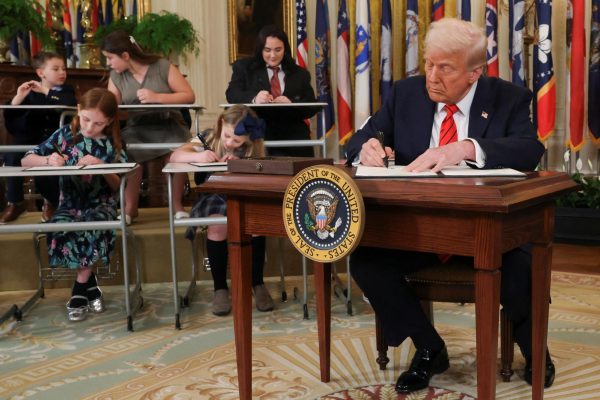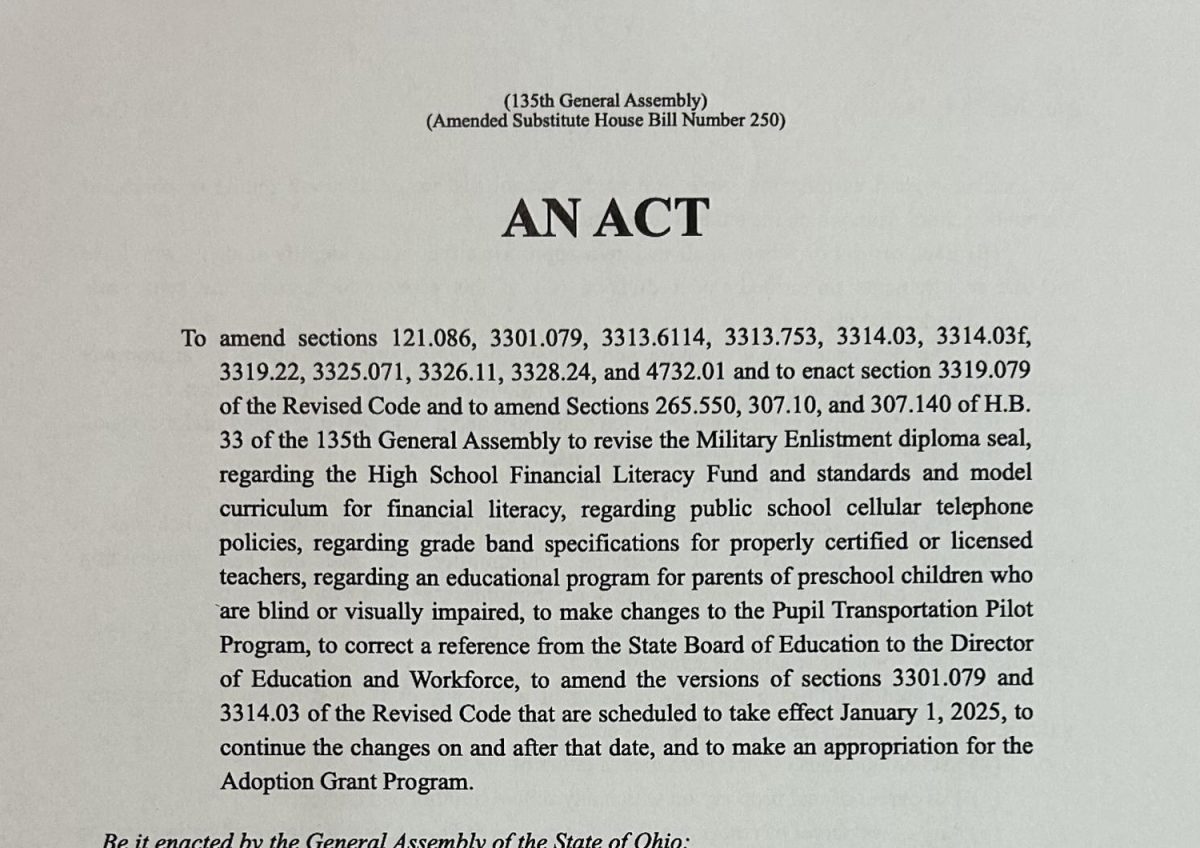The Department of Education is a federal agency that safeguards the freedom of education and ensures access to learning. On May 17, 1979, President Jimmy Carter signed the Department of Education into law, officially consolidating education by establishing universal standards. The Federal Department of Education is a cabinet-level bureau, meaning it is led by a secretary of education who is nominated by the president and confirmed by the Senate.
Much speculation has arisen about the purpose of the Department of Education since its creation in the late 1900s. Many people do not understand the agency’s true role, and recent executive orders signed by the Trump administration have made it difficult to distinguish fact from misinformation.

Unfortunately, the president does have the power to administer significant budget cuts, and the power to eliminate over half the DoEd’s workforce. Budget cuts and unemployment have not necessarily impacted our schools yet, but many teachers and administrators fear that the day will come when it will.
The Department of Education plays a vital role in our education system, even though much of its work remains unknown to the public. This lack of awareness is problematic, as it leaves people vulnerable to misleading media narratives about an essential part of American education. Staying informed is crucial, given that the Department of Education is responsible for the success and prosperity of learning across the United States.

Mr. Lewis, Lakewood’s AP government teacher, explains the role of the Department of Education in more detail.
“For our school, what the Department of Education is really important for really two things,” Lewis said. “One is making sure that our special needs students are getting the services that they need to be successful in school. And the second thing is, the Department of Education is really, really important to make sure that students of color are being treated fairly.”
The fair treatment of students is an ongoing and costly challenge, which underscores the vital role of the U.S. Department of Education in supporting schools nationwide. Lakewood’s head principal, Mrs. Morgan, highlights the department’s many services and policies that benefit educational institutions.
“Federally, there’s a lot [of policies],” Morgan said. “For example, the geometry end-of-course exam. We take that test in the state of Ohio not because of a state requirement, it’s a federal requirement. That’s an example of a test we give because federally, they’re making us do it. But IDEA, section 504, so kids who are on special ed on IEPs and 504 plans, all of that is federally driven by very specific law.”
The Department of Education’s involvement in special education is crucial due to the specialized and personalized needs of students with disabilities. However, their funding falls short of what is required in our district. Dr. Palumbo, Lakewood’s assistant superintendent, emphasizes this issue.
“From a US Department of Education perspective, they have never fully funded special education services,” Dr. Palumbo said. “So special education services are mandated under the law, but the funds that we get to serve students with disabilities don’t come anywhere close to the amount of money we spend in serving that student population.”

Lakewood spends nearly $70 million annually, with only $5 million coming from the federal government. While our district receives approximately $20 million from the state, we remain heavily reliant on local taxpayers and community resources. If the Department of Education’s funding were to decrease in the future, these numbers could decline significantly, potentially harming our students—especially those who are disabled or under-resourced. Lakewood’s community actively supports education; our levies pass, and local taxes contribute to our projected budget. In other communities lacking this level of support, a $5 million budget cut could severely impact districts. While we hope this does not happen, a reduction in funding remains a possibility ahead.
Currently, Dr. Palumbo has not observed any changes in the available resources.
“We have not been told that our federal funding will change. That could happen. But right now, as it stands we’ve been, you know, getting what we were allocated this year. We anticipate that we will get a very similar, if not identical, allocation next year,” Dr. Palumbo said. “I’m hopeful that those funds will continue. They’re important. You know, it doesn’t cover everything, but it helps relieve some of the burden.”
Funding from the Department of Education will never fully cover the extensive processes and materials needed for effective learning, but their support can significantly benefit children who need it most. Recent news has sparked speculation about the agency’s importance, and while there are some inconsistencies, budget cuts and unemployment will not solve the underlying issues. Education should be a top priority, and if learning matters to you, so should the Department of Education.

















































